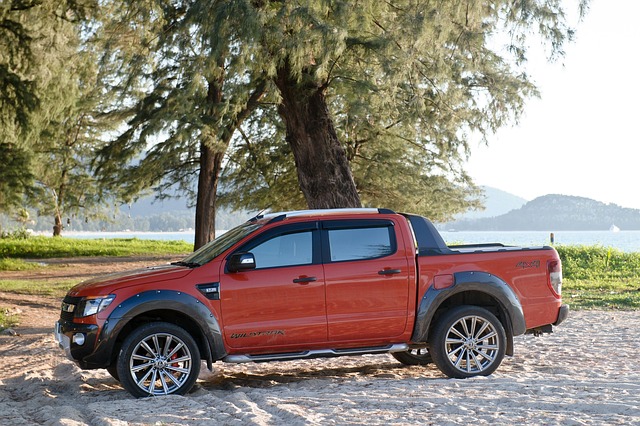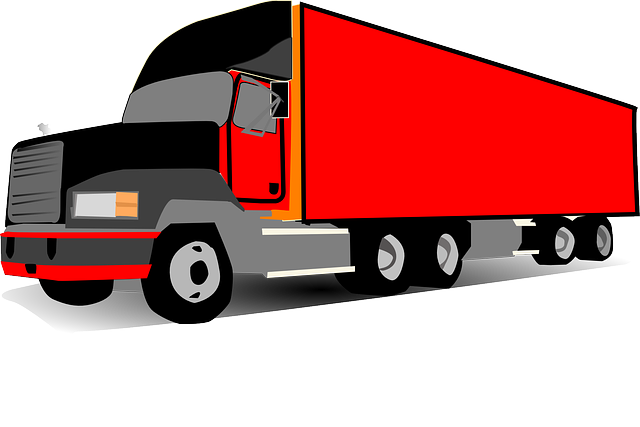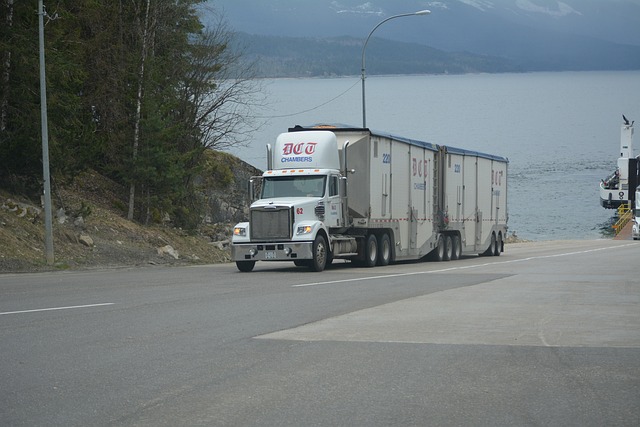For new trucking businesses, securing comprehensive yet cost-effective trucking insurance is vital. This includes liability and cargo protection, physical damage insurance, and specialized coverages as the fleet grows. Start by assessing unique operational needs, compare tailored policies from specialized insurers, and bundle types of insurance for savings. Regularly reassess coverage as your business expands, ensuring compliance with regulatory changes. Partnering with industry-savvy insurers allows focused growth while mitigating risks associated with trucking operations.
As your trucking business expands, so do your insurance needs. Creating a roadmap for scaling your insurance is crucial for navigating the complex landscape of trucking insurance. This guide covers everything from understanding your evolving requirements to securing affordable and comprehensive coverage for new fleets. We’ll walk you through key components, strategies, and step-by-step approaches to ensure adequate liability and cargo protection, specifically tailored for startups and small businesses in the trucking industry.
Understanding Your Insurance Needs as a Growing Trucking Business

As a newly established trucking business, understanding your insurance needs is paramount to ensuring smooth operations and mitigating risks effectively. Trucking insurance for new businesses goes beyond covering vehicles; it includes comprehensive protection for cargo, liability, and even physical damage. Starting with the right coverage can set the tone for the future growth of your fleet. Affordable trucking insurance options are available that cater specifically to startups, offering tailored packages that balance cost-effectiveness with robust protection.
When building a roadmap to scale, evaluating your insurance requirements at each growth stage is crucial. As your fleet expands, so do potential risks and liabilities. From cargo coverage for new fleets to liability insurance for startups, ensuring you have the appropriate protections in place can save you from financial burdens down the line. Prioritize finding a reliable insurer who understands the unique challenges of the trucking industry, enabling you to focus on growing your business while staying protected.
Key Components of an Effective Roadmap for Scaling Insurance

Creating a roadmap for scaling your insurance as your trucking business grows is essential to navigating the complex landscape of risk management. An effective roadmap must encompass several key components, each tailored to the unique needs of new businesses in this industry. Firstly, identifying the specific types of insurance required for your fleet is paramount. This includes affordable trucking insurance options that cover both liability and cargo, crucial elements for protecting your startup’s assets and financial health.
Secondly, as your business expands, so does your risk profile. Consider physical damage insurance to safeguard against unexpected events that could impact your fleet, ensuring continuity in operations. Additionally, evaluating the needs of your growing workforce is vital; this may include specialized coverage for employees, reflecting the responsibilities associated with managing a larger trucking operation. A well-structured roadmap should also account for potential changes in regulatory environments, ensuring compliance and mitigating legal risks as your new fleet insurance adapts to market demands.
Strategies to Secure Affordable and Comprehensive Coverage for New Fleets

Starting a new trucking business comes with unique challenges when it comes to insurance. Securing affordable and comprehensive coverage for a new fleet can seem daunting, but strategic planning can help. First, focus on understanding your specific needs. New businesses often require flexible policies that adapt as their operations grow, covering both cargo and physical assets. Liability insurance is crucial, shielding against potential claims related to accidents or damage.
Consider shopping around for quotes from multiple insurers specializing in trucking insurance. This allows you to compare rates and coverage options tailored to small businesses. Look for providers offering discounted packages for new fleets, which can significantly reduce costs. Additionally, bundling different types of insurance (like liability and physical damage) under one policy often leads to substantial savings. Remember, a well-informed decision on insurance early on can set the stage for smooth operations as your trucking business expands.
Navigating Liability Insurance and Cargo Coverage for Startups: A Step-by-Step Guide

For new businesses entering the trucking industry, understanding and securing the right liability insurance and cargo coverage is a critical step in their roadmap to success. This process can be complex, but with a structured approach, startups can efficiently navigate this essential aspect of risk management.
Begin by assessing your business needs. Identify the type of trucks you operate and their use cases. Whether it’s a small fleet of delivery vehicles or an expanding trucking operation, each will require tailored coverage. Research and compare various insurance providers offering specialized trucking policies to find affordable options. Look for packages that include physical damage insurance, protecting your vehicles from accidents or natural disasters. Additionally, ensure liability insurance covers potential cargo-related incidents, especially when dealing with valuable goods. Startups can benefit from consulting industry peers or seeking advice from insurance brokers who specialize in trucking insurance to make informed decisions based on their unique operational requirements.
As your trucking business expands, navigating the complex world of insurance can seem daunting. However, by understanding your evolving needs and implementing a strategic roadmap, you can secure comprehensive yet affordable coverage for your new fleet. This guide has provided insights into the key components of an effective scaling plan, from assessing liability risks to exploring options for physical damage insurance. By following these steps, startup trucking businesses can confidently navigate their insurance landscape, ensuring they’re protected as they grow and thrive in the industry. Remember, a well-planned insurance strategy is a cornerstone of long-term success in the trucking sector.
